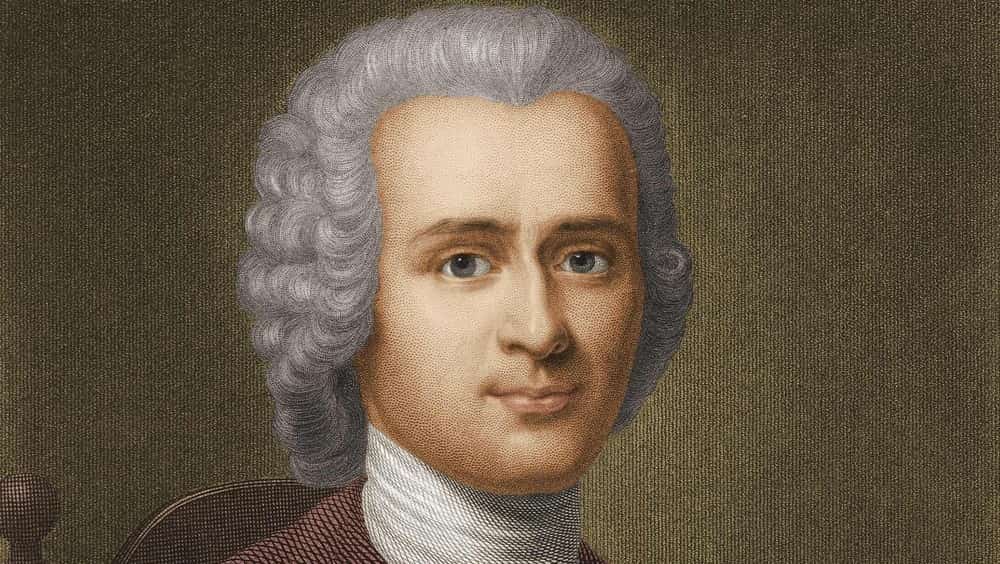Considered the father of modern education: Who is Jean-Jacques Rousseau?
He was one of the organizers of the French Revolution, as he was against the aristocracy and personalism in matters of law and social morality.

One of the most prominent intellectuals in world history is the most well-known French writer of the 18th century. He was born in Geneva, Switzerland. He was the son of a French family that had been settled in Geneva for over a century. His father was a watchmaker. His mother was the daughter of a priest. Jean-Jacques Rousseau lost his mother as soon as he was born. The books that remained from him played a great role in the upbringing of Rousseau. Watchmaker Rousseau had to flee Switzerland due to a lawsuit. Jean-Jacques Rousseau was orphaned. He grew up in difficulties. After wandering from village to village with itinerant priests for a while, he came under the patronage of a wealthy woman named Madame De Warens in Annecy. He studied at a monastery for a while, then worked in many jobs to earn a living, including as a servant.
Jean-Jacques Rousseau (28 June 1712 – 2 July 1778) was a Genevan philosopher (philosophe), writer, and composer. His political philosophy influenced the progress of the Age of Enlightenment throughout Europe, as well as aspects of the French Revolution and the development of modern political, economic, and educational thought.
He arrived in Paris in 1741. It was there that he met Diderot. With his encouragement, he wrote down the music mentioned in the "Great Encyclopedia". Meanwhile, in order to participate in a competition opened by the Dijon Academy, he wrote the famous work called "The Speech on Sciences and Arts" and won the competition. This brought Jean-Jacques Rousseau to fame.
After that, Jean-Jacques Rousseau wrote many works one after the other. One of them, "Emile", was published in 1762 and caused a great stir. Two weeks later, Parliament decided to detain Rousseau. His ideas on inequality and injustice made people happy. The gendarmes saluted that they would arrest him. Since the Geneva Parliament made the same decision a week after the Paris Parliament, Jean-Jacques Rousseau could not go to the city where he was born, and he had to take refuge in Prussia.
Jean-Jacques Rousseau went to England in 1766. He returned to Paris in 1770. He lived a comfortable life for 8 years. When he wrote his "Confessions", he got into trouble again. This work caused great noise before it was published. When he died, he was buried on an islet in the lake in the middle of Ermenon-Ville Park. Later, in 1794, his bones were brought to the Pantheon in Paris.
Jean-Jacques Rousseau is one of the founders of romanticism in literature. The love of nature, the exciting and sincere method called the "confession style" entered French literature with him. In his intellectual life, he was against many civilized institutions because he believed that society corrupted people. He wanted a return to natural, primitive life. He was a supporter of teaching with practice in child upbringing: He is considered the father of modern education, as he pursued the way of leaving the child in the middle of life, raising him naturally and letting him learn everything through his own trials. He was one of the organizers of the French Revolution, as he was against the aristocracy and personalism in matters of law and social morality.
Jean-Jacques Rousseau – Emile Book Summary:
It is the author's educational novel. The author, who considers people to be good from birth, shows his life from the birth of the child he chooses to his marriage in five parts in his work, which argues that education should be in accordance with nature first of all. The child should be fed with mother's milk, not swaddled, should live in the countryside, should be left to instinctive learning, should not be forced to learn a language, should not be scared at all.
(Chapter 1, Cradle Education).
(Part 2) It is the period of personal experiments between the ages of 12-15. Emile will find out the subjects of positive knowledge such as physics and geography in his own way, try to think, make comparisons, ask himself questions, and develop his hand (carpentry art). The book he should read should be Robinson Crusoe
(Part 3). It should be considered as the period of religious education between the ages of 15-20.
Jean-Jacques Rousseau Information on Confessions:
His work, which describes the author's private life with great sincerity, was written by Jean-Jacques Rousseau in 1765-1767 (from his birth to his arrival in Paris in 1740), and the second part in the Christian religion, especially in Catholicism. It is stated that he read it in halls without thinking of writing and printing in 1768-1770 (until 1765). This powerful work, which has opened the door to many discussions due to its sincerity and openness, is considered the most interesting and impressive product of its author.
Jean-Jacques Rousseau – Information about Julie or the New Héloise:
His inspiration was M. d'Epinay's hopeless but virtuous love for his sister-in-law, Madame de Houdetot. This great deep love story, which is formed in the correspondence of two lovers (Julie and her teacher Saint-Preux) who cannot be reunited, is also based on the source of another great love that went down in history with the correct connotation of its name and the similarity of the subject: After his castration, he had a secret marriage with the French philosopher Petrus Abaelardus. The unhappy life of Héloise (1101-1164), who wrote in Latin until her death (1079-1142) in the convent where she was a nun. Saint Preux, who cannot reunite with Héloise, whom he loves because he is not noble in the novel, will undertake the education of his children after his accidental death.
